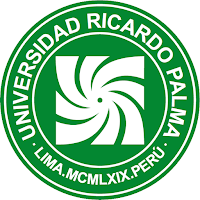The Dilemma of Knowledge in The Black Heralds (1919). A Rereading of the Poem «The Spider»
The Dilemma of Knowledge in The Black Heralds (1919). A Rereading of the Poem «The Spider» The Dilemma of Knowledge in The Black Heralds (1919). A Rereading of the Poem «The Spider»
Article Sidebar
Main Article Content
Luis Velásquez Ccosi
Abstract
This article proposes that the poems of The Black Heralds and, specially, the referenced poem deconstructs the classic system of a modern science when mobilizes the elements that are put into play, the subject and the object, undoing all hierarchy between them. The poem «The Spider», particularly, is a deep reflection about the knowledge and the possibilities of the knowledge of the subject and inside him, where is fundamental the enunciative position that puts in evidence the concrete particularity in the construction of knowledge, in opposition to the supposed universality of a transcendental subject (Castro-Gómez). In this way, a phenomenological approach of the body of the supposed «object», but also of the «subject», would show the investments that are made in the poem, on the form of an approach to the knowledge of a radical otherness «a spider» (Derrida).
Article level metrics
Downloads
Metrics
Article Details

This work is licensed under a Creative Commons Attribution 4.0 International License.
La revista utiliza una licencia Creative Commons para mostrar a los lectores y a los usuarios cómo se pueden utilizar los contenidos publicados.
Los contenidos publicados en la revista están bajo una licencia CC-BY 4.0, la cual permite:
- Compartir, copiar y redistribuir el material en cualquier medio o formato.
- Adaptar, remezclar, transformar y construir a partir del material para cualquier propósito, incluso comercialmente.
Bajo los siguientes términos:
- Atribución. Usted debe dar crédito de manera adecuada, brindar un enlace a la licencia, e indicar si se han realizado cambios. Puede hacerlo en cualquier forma razonable, pero no de forma tal que sugiera que usted o su uso tienen el apoyo de la licenciante.
La información de licencia se muestra e incrusta en las páginas de artículos y en ficheros de texto completo como sigue:
«Este obra está bajo una licencia de Creative Commons Reconocimiento 4.0 Internacional».
Castro-Gómez, Santiago (1996). Crítica de la razón latinoamericana. Barcelona: Puvill Libros.
Derrida, Jaques (2008). El animal que luego estoy si(gui)endo. Edición de Marie-Louise Mallet. Traducción de Cristina de Peretti y Cristina Rodríguez Marciel. Madrid: Trotta.
Fernández Cozman, Camilo (2014). Las técnicas argumentativas y la utopía dialógica en la poesía de César Vallejo. Lima: Editorial Universitaria de la Universidad Ricardo Palma/Cátedra Vallejo.
Fontanille, Jaques (2017). Soma y sema. Figuras semióticas del cuerpo. Traducción de Desiderio Blanco. Lima: Fondo Editorial de la Universidad de Lima.
Foucault, Michel (2008). Las palabras y las cosas. Una arqueología de las ciencias humanas. Buenos Aires: Siglo Veintiuno Editores.
Franco, Jean (1984). César Vallejo: la dialéctica de la poesía y el silencio. Buenos Aires: Editorial Sudamericana.
González Vigil, Ricardo (2009). Claves para leer a César Vallejo. Lima: San Marcos.
Higgins, James (1989). César Vallejo en su poesía. Lima: Seglusa Editores.
izquierdo Ríos, Francisco (1949). César Vallejo y su tierra. Lima: Rímac.
Merleau-Ponty, Maurice (1986). El ojo y el espíritu. Traducción de Jorge Romero Brest. Barcelona: Paidós.
Morillo, Álex (2016). «César Vallejo: la fundación orgánica y vitalista de la poesía peruana». Tesis. Revista de Investigación de la Unidad de Posgrado de la Facultad de Letras y Ciencias Humanas de la UNMSM, 9, 35-50.
Schuman, Iván (1969). El modernismo hispanoamericano. Buenos Aires: Centro Editor de América Latina.
silva-Santisteban, Ricardo (1997). «Prólogo». En Vallejo, César. Poesía completa. Tomo I. Lima: Fondo Editorial de la Pontificia Universidad Católica del Perú.
Vallejo, César (2013). Poesía completa. Edición e introducción de Ricardo González Vigil. Lima: Ediciones Copé.
Zea, Leopoldo (1976). El pensamiento latinoamericano. Barcelona: Ariel.
Zugasti, Miguel (1989). «La dualidad poética en “Los heraldos negros” de César Vallejo». Rilce. Revista de Filología Hispánica, 2, 345-362.










